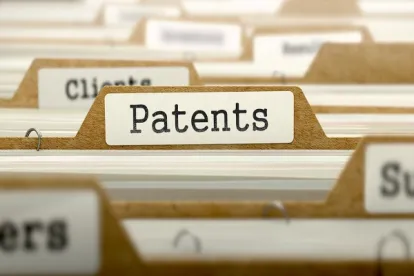The US Court of Appeals for the Federal Circuit agreed with the Patent Trial and Appeal Board (PTAB) that because a patent owner disclaimed all claims challenged in an inter partes review (IPR) prior to institution, the IPR petitioner was entitled to an adverse judgment. Arthrex, Inc. v. Smith & Nephew, Inc., Case No. 17-1239 (Fed. Cir., Jan. 24, 2018) (Dyk, J) (O’Malley, J, concurring) (Newman, J, dissenting).
After a petition for IPR was filed against a patent owned by Arthrex, Arthrex disclaimed all claims that were the subject of the petition. The disclaimer occurred before the PTAB issued an institution decision. The PTAB then entered an adverse judgment citing 37 CFR § 42.73(b). Arthrex appealed.
The Federal Circuit panel majority agreed that the PTAB acted within the scope of the regulation. While the rule defines “trial” as requiring “a contested case instituted by the Board based upon a petition,” the Federal Circuit explained that the language relating to remaining claims “in the trial” can be interpreted as meaning that there is no claim remaining for trial, which occurs when, as here, all of the challenged claims have been cancelled.
The Court further explained that the rule’s purpose is to define the circumstances in which the estoppel provision applies, and that the purpose of the estoppel provision is to “provide[ ] estoppel against claims that are patentably indistinct from those claims that were lost.” The panel thus concluded that there was “no meaningful distinction between claims that are cancelled before an IPR proceeding is instituted and claims that are cancelled after an IPR proceeding is instituted.”
The panel considered the various subsections of § 42.73(b), explaining that the rule should be applied consistently over the various subparts. Subsection 1 states that “[d]isclaimer of the involved application or patent” will be construed as a request for an adverse judgment, and the panel explained that “this subsection on its face seems to apply at any time during the proceeding. We see no reason why estoppel should apply if a patent owner disclaims an entire patent or application before an institution decision but should not apply if a patent owner merely disclaims some of the claims.” The panel noted that subsection 3 “similarly contains no time limitation” and that according to this subsection, “a ‘[c]oncession of unpatentability or derivation of the contested subject matter’ will be construed as an adverse judgment.”
In her concurrence, Judge O’Malley agreed with Judge Dyk that the Federal Circuit had jurisdiction to review the PTAB’s adverse judgment against Arthrex, and that the PTAB’s interpretation of § 42.73(b) was consistent with the text of that regulation. O’Malley expressed doubt, however, “about whether the Director had the authority under 35 U.S.C. § 316 (or any other statutory provision) to issue that regulation [§ 42.73(b),] or whether, if so, the regulation was properly promulgated.”
In dissent, Judge Newman expressed the view that the IPR was not “instituted” because the patentee disclaimed all of the challenged claims before the PTAB decided whether to institute. In her view, no IPR could be instituted because no challenged claims remained in the patent. Newman found the adverse judgment improper since, according to the majority, it “subjects Arthrex to the estoppel provisions of 37 C.F.R. § 42.73(d)(3) . . . as if there had been an IPR trial and Arthrex had lost on the merits.”




 />i
/>i

